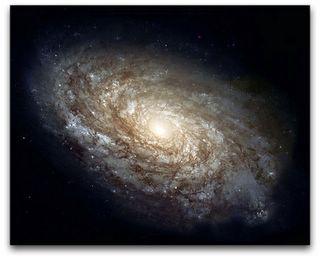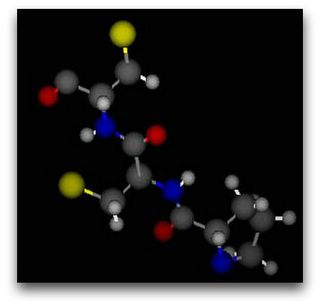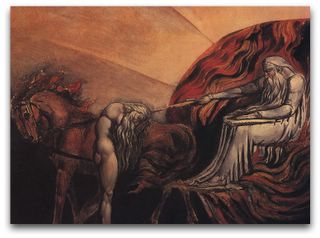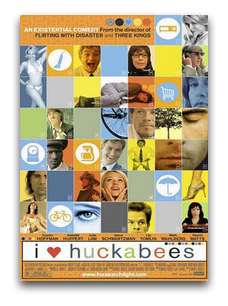i heart truth
I Heart Huckabees.
If as Karl T. Jaspers insists the final existential outcome of “authentic existence” results in us all making decisions, then living by the consequences of them, I would like to ask, what makes us choose those decisions? If we beings are simply made of the fabric, of the universe what makes one decision positive or negative, good or bad, right or wrong and why should any truly matter in the Woof and Warf of it all?
If as Karl T. Jaspers insists the final existential outcome of “authentic existence” results in us all making decisions, then living by the consequences of them, I would like to ask, what makes us choose those decisions? If we beings are simply made of the fabric, of the universe what makes one decision positive or negative, good or bad, right or wrong and why should any truly matter in the Woof and Warf of it all?

Macrocosm - I know it is true when I look here
When I’ve looked out at the fabric of the cosmos, by looking at the night sky for example, it has indeed spoken to me of good and evil. Not just spoken of it, it is has screamed it at me, or maybe I should say it has cried out to me. It has said we live in a world fallen from love into a harvest of death, the consequence of a poor decision you might say. Yes, the cosmos cries out that there is good and bad – it’s just that its reaction to it may seem muted at times, as the stars continued to twinkle even over the death camps of Auschwitz-Birkenau or the killing fields of Rwanda. The cosmos may seem silent but it is not, as the truth of good and evil are sewn even into the very fabric of existence. That big blanket which Bernard Jaffe (Dustin Hoffman) describes is indeed also connected to morality and ethics, good and evil.

Microcosm - I know it is true when I look here
We were once told that the achievement of the knowledge of evil would make us like God and that is why God had asked us not to choose to attain it. That half-truth was the most pernicious of lies as the perpetrator neglected to remind us what God had forewarned should we gain it. The knowledge of evil only precipitates the purchase of death, which is the separation of the God of love. In the light is no darkness, evil cannot dwell in good. That God is Love and no evil dwells inside love; even the knowledge of evil cannot live there. That was humankinds first existential decision and the cosmos and we have been living the consequences of that poor decision ever since.

William Blake - God Judging Adam 1795
As we all have this inherent understanding of what is good and evil how does this cosmos continue finding balance, instead of fluctuating towards the one or the other – affirmation of love or the chaos of absurdity. What in fact is the glue that holds this cosmos together? It is love. Love holds the chaos or oblivion at bay through common grace; you could call grace the sustainer which stops the something from pouring into the nothingness of entropy if you’d like – in that quantum physics way of things.
The universe also speaks back existentially and says there is love. Why? Because God is love and love created the cosmos. The universe was created for God’s pleasure so that we might enjoy it forever – it was a gift of love. All of us know in our hearts what is evil, it’s no surprise that murder isn’t celebrated in any culture except under the evil pretext of war and war is not love; war is hell. As we all know evil, so do we all know that we were created good as beings for love, the love of a parent for a child for example. We know that we are the God of creations children, separated from him by that knowledge of evil and its reward of death. This is not an existential relative but rather and absolute truth. The outcome of evil is usually evil unless the grace of love intervenes. These are the decisions we all make but the outcomes remain the same, evil can not begat good or good, evil unless the grace of love intervenes to redeem evil. There would not be a soul who perished in Auschwitz that would say their death there somehow enriched the world, yet even there they created music, and flowers grew from window boxes on the barracks when they lived. Even in the darkness, the light has shone and given this most heinous of human acts, genocide, meaning to us the living as to why we should choose love.
We don’t need to smack our faces with a ball to find a moment of nothingness on a Zen plane of conscientiousness, because our pain matters, it has value as does our joy. If you return to the eternal, pool of consciousness and don’t leave a ripple in that existentialist way of Zen, this is nothing more than death. We all leave a ripple and therefore we must choose life, love and as such that means we must choose God. If the end were truly death as in, no more being - nothingness, why would our existential decisions be nothing more than the Absurd Universe which Jean Paul Sartre describes in his book “Being and Nothingness”. Even Sartre made ethical and moral decisions (The Algerian War) based on the true underlying fabric of reality, that we are all created in the image of a God of Love. When Sartre became a communist, ethics suddenly became his choice and he would suffer the realization: that the praxis of his philosophy has a price. In the laws of cause and effect of psychics, even good and evil fall within those parameters. That is the nature of this existential reality and propositionally put forth by Christ’s sermons. Do we choose to love our neighbour, help the man on the road to Damascus? Alternatively, do we put ourselves back in the center of the Universe ignoring the reality of love and the laws of cause and effect only to serve our self, assuming to understand the infinite as finite beings? Hubris truly is a sin.
Even “I Heart Huckabees” came to that conclusion without that mention of God. (I digress; I did find it odd that they choose a group of peculiar Red-Necks to portray a religious family and not Mother Theresa for example.) The philosopher Albert Camus answered the charming French existential detective Caterine Vauban (Isabelle Huppert) presuppositions many years before and his stoic conclusion of simply taking of his own life; suicide. If as Vauban concludes in the movie “Life is an oscillation between the cruel and the absurd theatre of human drama the peace attained from simply being and not thinking.” The conclusion of “not thinking” might indeed be the same conclusion, which Camus postulated in his work “A Happy Death” where in he says, "You make the mistake of thinking you have to choose, that you have to do what you want, that there are conditions for happiness. What matters -- all that matter is -- is the will to happiness, a kind of enormous, ever-present consciousness. The rest women, art, success -- is nothing but excuses…” As if to say that only the decision matters and in that conclusion even it is meaningless. In a world without the God of love, all is but vanity, pain, joy, and human aspirations are all meaningless; thus, life is futile and empty as empty as death.
What does the big picture really say? It says pain and suffering have meaning and value; they make us human and tie us to our own humanness in understanding the outcome of evil. The resurrected Christ carried his wounds on his sanctified body for Thomas to put his hand on and finger in. The knowledge of evil will indeed evolve us to a higher being, although not the one Lucifer described in the Garden of Knowledge, rather it is the knowledge that knows our inseparable nature we have to a God of love. A God that created us in love to enjoy creation and the fabric of love throughout this cosmos forever.
Knowing this makes the decisions that much easier. Choose life, elect to do “good” and honour God’s Love in all that we do.
That is the good news! Knowing this gives us the information we need to make critical decisions and have foresight into what the outcomes might be. If we choose to love our neighbour, even if our neighbour can find no love for us, the outcome of our decision will always remain the same, even if our neighbour elects to harm us as the reward. If we suffer for love how much more does that say if even pain has meaning: the Passion of Christ? It seems to me that “I Heart Huckabees” based the final decision of the two main characters Albert Markovski (Jason Schwartzman) and Tommy Corn (Mark Wahlberg) on a complete leap of faith, they choose to do good in understanding their common humanity, being cut from the same farbic. I ask again, what makes their decision positive or negative? Using the formula of the film and existentialism, the only thing one can truly celebrate is that they made a decision; the rest is purely absurd and an excuse.
We don’t need to smack our faces with a ball to find a moment of nothingness on a Zen plane of conscientiousness, because our pain matters, it has value as does our joy. If you return to the eternal, pool of consciousness and don’t leave a ripple in that existentialist way of Zen, this is nothing more than death. We all leave a ripple and therefore we must choose life, love and as such that means we must choose God. If the end were truly death as in, no more being - nothingness, why would our existential decisions be nothing more than the Absurd Universe which Jean Paul Sartre describes in his book “Being and Nothingness”. Even Sartre made ethical and moral decisions (The Algerian War) based on the true underlying fabric of reality, that we are all created in the image of a God of Love. When Sartre became a communist, ethics suddenly became his choice and he would suffer the realization: that the praxis of his philosophy has a price. In the laws of cause and effect of psychics, even good and evil fall within those parameters. That is the nature of this existential reality and propositionally put forth by Christ’s sermons. Do we choose to love our neighbour, help the man on the road to Damascus? Alternatively, do we put ourselves back in the center of the Universe ignoring the reality of love and the laws of cause and effect only to serve our self, assuming to understand the infinite as finite beings? Hubris truly is a sin.
Even “I Heart Huckabees” came to that conclusion without that mention of God. (I digress; I did find it odd that they choose a group of peculiar Red-Necks to portray a religious family and not Mother Theresa for example.) The philosopher Albert Camus answered the charming French existential detective Caterine Vauban (Isabelle Huppert) presuppositions many years before and his stoic conclusion of simply taking of his own life; suicide. If as Vauban concludes in the movie “Life is an oscillation between the cruel and the absurd theatre of human drama the peace attained from simply being and not thinking.” The conclusion of “not thinking” might indeed be the same conclusion, which Camus postulated in his work “A Happy Death” where in he says, "You make the mistake of thinking you have to choose, that you have to do what you want, that there are conditions for happiness. What matters -- all that matter is -- is the will to happiness, a kind of enormous, ever-present consciousness. The rest women, art, success -- is nothing but excuses…” As if to say that only the decision matters and in that conclusion even it is meaningless. In a world without the God of love, all is but vanity, pain, joy, and human aspirations are all meaningless; thus, life is futile and empty as empty as death.
What does the big picture really say? It says pain and suffering have meaning and value; they make us human and tie us to our own humanness in understanding the outcome of evil. The resurrected Christ carried his wounds on his sanctified body for Thomas to put his hand on and finger in. The knowledge of evil will indeed evolve us to a higher being, although not the one Lucifer described in the Garden of Knowledge, rather it is the knowledge that knows our inseparable nature we have to a God of love. A God that created us in love to enjoy creation and the fabric of love throughout this cosmos forever.
Knowing this makes the decisions that much easier. Choose life, elect to do “good” and honour God’s Love in all that we do.
That is the good news! Knowing this gives us the information we need to make critical decisions and have foresight into what the outcomes might be. If we choose to love our neighbour, even if our neighbour can find no love for us, the outcome of our decision will always remain the same, even if our neighbour elects to harm us as the reward. If we suffer for love how much more does that say if even pain has meaning: the Passion of Christ? It seems to me that “I Heart Huckabees” based the final decision of the two main characters Albert Markovski (Jason Schwartzman) and Tommy Corn (Mark Wahlberg) on a complete leap of faith, they choose to do good in understanding their common humanity, being cut from the same farbic. I ask again, what makes their decision positive or negative? Using the formula of the film and existentialism, the only thing one can truly celebrate is that they made a decision; the rest is purely absurd and an excuse.
I enjoyed this film as it made me think and anything which causes people to question, “Why are we here?” is good by me. I wish more of Hollywood would stimulate such questions in us. A well done movie even if its outcome is bleak, it made me laugh!




1 Comments:
I’m sorry if my writings seem turgid or inaccessable but I am so happy that you got the point anyway. I also need to feel that grace and love as I have many days where it seems shrouded and removed from me also. I guess that why I wrote it to remind myself.
Thanks you for your kind words about my photography. I’m just amazed that I can find such beauty each and every day just by walking out my back door, right here in front of me.
I’m curious about the land you see from day to day and speak of in your comments. I wish you’d tell me more about it. Is it a salt desert or an industrial park? Please do tell me more.
Thanks for responding, it means something to me.
Post a Comment
<< Home